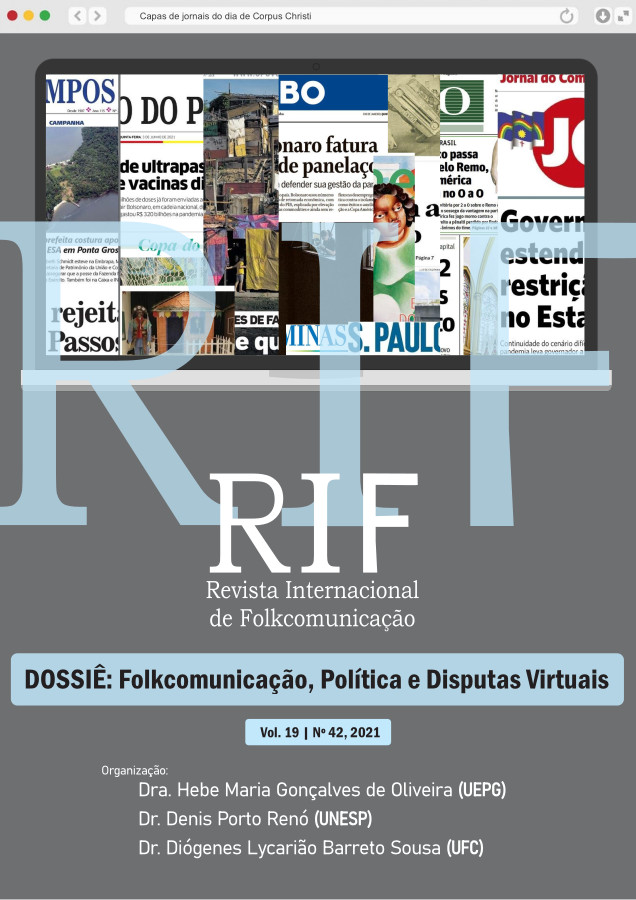Folkcommunication Elements in the Speech of former President Lula: A Historical Record of Brazil Ovated in the Pages of The Economist
DOI:
https://doi.org/10.5212/RIF.v.19.i42.0007Abstract
The Economist. The present study aims to discuss a historical record of Brazil, based on a complimentary and even euphoric look, about it in the British newspaper The Economist during the second term of former President Lula. The vehicle is regarded by economists and financial market experts from around the world as the bible of world liberalism; with this "brand" The Economist goes from panic with the imminent victory of the former union leader in 2002 to enthusiasm for the former Head of State of Latin America's greatest economic power house in less than a decade! This paper, with theoretical foundation surrounded by discourse analysis and important folkcommunicational aspects, makes a return to a recent historical past, however, extremely distant from the current Brazilian reality, in which the crisis permeates various sectors and the folk language, light, peaceful gave way to the discourse of "denialism" in the face of social demands of emergency order, as is the case of hunger , employment, public health. Finally, what was "marolinha" in the economy of the Lula Government, turning into praise and example for the whole planet, today seems a distant historical record. It is the aforementioned record that now presents itself, involving the speech as the central axis of the folk image of a former Brazilian president who brought praise and euphoria to his country. Brazil; Folkcommunication; Lula; The Economist.
Downloads
Published
How to Cite
Issue
Section
License

Este obra está licenciado com uma Licença Creative Commons Atribuição 4.0 Internacional.
Os autores são responsáveis, em qualquer que seja o formato do texto, pelas opiniões expressas ou indiretas presentes em seus respectivos trabalhos, não endossáveis pelo Conselho Editorial e pelos editores da Revista, bem como pela autenticidade do trabalho. Ao publicar trabalhos na Revista Internacional de Folkcomunicação, os autores cedem automaticamente os direitos autorais à publicação para veiculação das produções acadêmicas, sem ônus para a Revista. Os autores detêm os direitos autorais do texto para o caso de publicações posteriores e concedem à Revista Internacional de Folkcomunicação o direito de primeira publicação, com o trabalho simultaneamente licenciado sob a Creative Commons Attribution License, que permite o compartilhamento do trabalho com reconhecimento da autoria e publicação inicial nesta Revista. Por serem publicados em revista de acesso livre, os artigos são de uso gratuito, com atribuições próprias, em atividades educacionais e não-comerciais, sendo permitida a publicação simultânea em repositórios institucionais.































